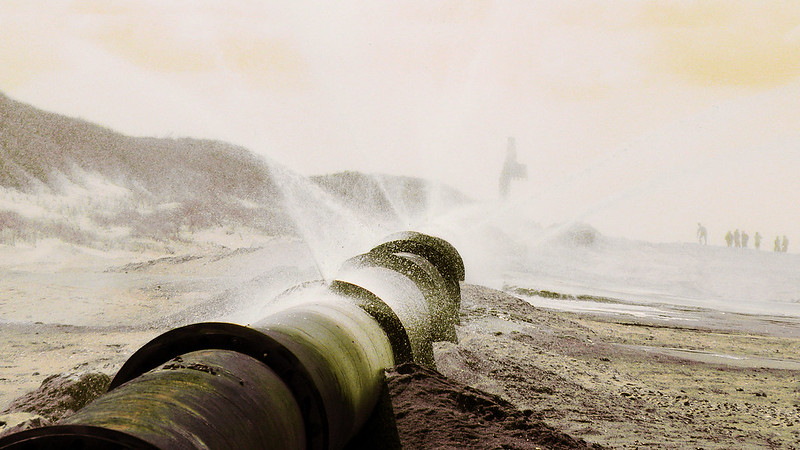Germans are gearing up for a cold winter this year as energy prices rise. Still, polling conducted for RTL/ntv found that a majority of Germans—53 percent—are against any usage of the controversial Nord Stream 2 pipeline to import Russian gas. But why just 53 percent, when it’s so clearly a source of revenue for a country who is using that money to fund a war of aggression? Almost 40 percent of respondents want Nord Stream 2 to be put back into operation. Their reasons are diverse, but they come down to one thing—money.
The German government’s failure to meaningfully blunt the impact of the energy crisis will likely play into Putin’s hands this coming winter—especially as COVID-season starts again. Without solutions in the near future, public solidarity with Ukraine could evaporate.
Germany is facing a cost of living crisis
Like the UK, the US and many other major economies, Germany is suffering from high levels on inflation, falling real wages, rising food and rent prices, and high energy prices. Households are under severe financial stress, and heating is about to tip the balance for many.
For homeowners who aren’t willing or able to spend several thousand Euros extra this year, a cold winter is the worst and most likely outcome. Many other middle and lower-income Germans, though, are going to be forced into a much more difficult position. That’s because the favored solution touted by German politicians—not heating, or heating very little—is a luxury that renters do not enjoy.
Tenants are required to heat and air their apartments out sufficiently to prevent mold. The colder the temperature, the more likely mold-growth becomes. In practice, this means that renters will be forced to heat to at least 16°C (61°F) to avoid liability. While that’s uncomfortably cold, the associated heating bill for anyone paying the current market prices would still likely match or exceed their monthly rent.
Lower indoor temperatures will affect health outcomes
Inadequate heating in 2022-23 will likely boost the spread and the lethality of COVID noticeably. That’s because the most vulnerable—retirees and very young children—are also the most likely to live in financially insecure (i.e. cold) households. Even relatively comfortable but cool temperatures can slow down immune responses, and simply breathing cold air can prevent the body from reacting properly to a viral infection.
Germany, and especially the current government, have maintained an extremely vigilant posture regarding COVID, continuing to require masking in select situations throughout the summer and gearing up for even more booster vaccinations this fall. After years of restrictions and massive investments, a record wave of infections and rising death rate is a politically dangerous prospect for the current government.
The German government is scrambling for alternate solutions
Currently, the German government is hunting for any solution to the energy crisis that won’t offend its allies—specifically the US. To do that, they’re negotiating with Canada and pushing for a new Iran deal. If the latter can be implemented in the near future, it could, in theory, solve Germany’s energy crisis entirely. Iran has the necessary production capacity, but it also has no shortage of buyers in the current global energy environment.
Nord Stream 2, and Russian gas in general, will remain a bitter point of contention in Germany and internationally—at least until other supply options are secured.



























